'If we get the assisted dying law wrong, some groups will be collateral damage'
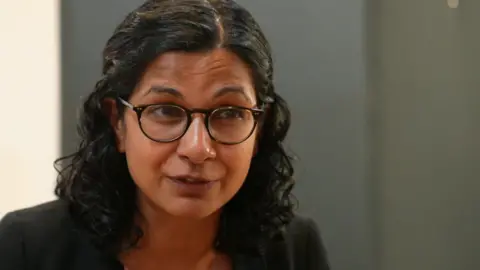 BBC
BBC"Death is a very, very sensitive issue. Who are we to make that decision?"
That question, raised at a recent event at the WomenZone community centre in Bradford, touches on the profound dilemmas MPs will face in Friday's debate about the Terminally Ill Adults (End of Life) bill - better known as the assisted dying law.
Supporters of the bill see it as a compassionate move towards dignity in death.
Critics worry about its ethical implications and, for some, whether the most vulnerable will be left behind.
For Tahera Kacholia, whose husband died after a heart attack only a few months ago, it is an uncomfortable and perhaps unanswerable question.
"Who are we to make that decision? We leave it to Allah," she says.
Jordan Findlay, who lost her mum a decade ago, is on the other side of the debate.
For her, the assisted dying bill is about restoring dignity.
"When you have a terminal diagnosis, all control is taken away. This bill gives some of that dignity and choice back," she says.
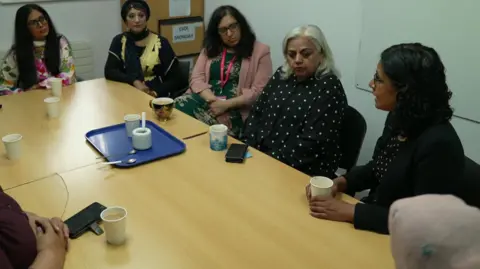
The Bradford discussion, organised by palliative care consultant Dr Jamilla Hussain, reveals deep anxiety among ethnic minority communities in particular, shaped not just by religion but by feelings of cultural exclusion, historic mistrust of institutions, and fears around coercion.
"But still, we do want our say. We do want to discuss it," adds Mrs Kacholia.
Another participant echoes that: "We are not saying stop the bill – but start listening properly before you proceed."
Mrs Kacholia believes spiritually sensitive care and localised support are being overlooked.
"There are other ways to help ease the pain," she explains.
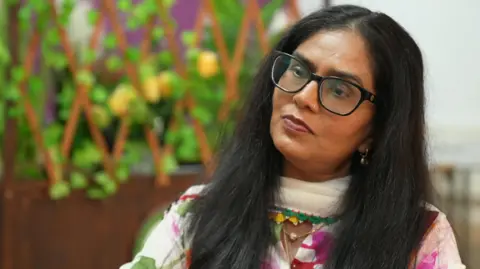
The assisted dying bill, brought by Batley and Spen MP Kim Leadbeater, would legalise euthanasia for terminally ill adults expected to live for less than six months.
Strict safeguards would include approval from two doctors and a review panel.
In a final plea to MPs earlier this week, Ms Leadbeater said failure to act now would be "a dereliction of duty" and would delay change by a decade.
But in Bradford, that duty, many argue, must include better grassroots engagement - particularly in communities who already feel marginalised.
For some, Covid intensified existing fears, for others, such as Ghazala Khalid, the mistrust dates back longer.
In 2017, her mother had a stroke and doctors told the family she would not survive.
Her mother lived not just that night -but for another two years.
"After God, we trust doctors - we say our life is in their hands," she says.
"That doesn't mean they know everything or they can do whatever they want."
Dr Hussain has spent months gathering views from ethnic minority and marginalised communities across the UK.
She says many families worry vulnerable people, such as those with disabilities, learning difficulties or experiencing domestic abuse, may be manipulated and coerced into making irreversible decisions.
"We've heard from parents of disabled children and carers for people with learning difficulties.
"They told us, 'we know our children best - but this bill puts the power in the hands of someone who may not understand them,'" she explains.
For women in abusive situations could there be additional layers of risk?
"Someone might seem of sound mind in a medical assessment. But what happens before they walk into that room? What has that person been coached to say - or coerced into believing?
"The biggest risk is that people who already experience inequality in end-of-life care will now fear accessing care at all," Dr Hussain says.
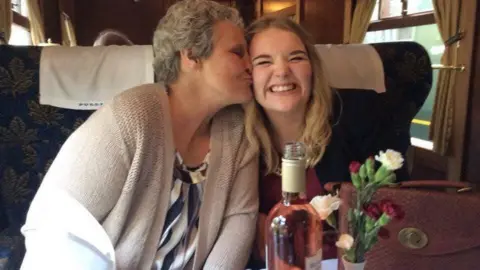 Jordan Findlay
Jordan FindlayJust a few miles away in Leeds, campaigner Jordan Findlay believes the conversation must also centre on those already dying.
Her mother, Anne Louise Findlay, died of cancer 10 years ago, aged 57.
"She made it very clear that if she had the opportunity to access assisted dying, she would have," says Miss Findlay.
Fears over finance and legal implications stopped the family accessing euthanasia abroad, she says.
"She wasn't suicidal. She was just beyond medical help. Even with good palliative care, the pain was unmanageable," Miss Findlay explains.
Aged 18, she dropped out of her A-levels and helped care for her mum at home.
"The real moral choice would have been to let her go peacefully, on her terms," she proffers.
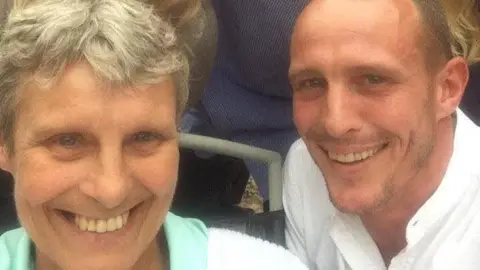 Jordan Findlay
Jordan FindlayJordan now campaigns for law reform with the Dignity in Dying charity and believes robust safeguards can prevent abuse.
"Doctors already assess coercion and capacity for serious decisions every day. With training and multiple safeguards, I believe we can do this safely," she says.
Back in Bradford, Dr Hussain agrees the debate needs to balance compassion with caution - especially for those already on the margins of care.
"There are a growing number of medical and neutral voices calling for more work around those safeguards.
"MPs must be happy that the safeguards not included in the bill are OK when they vote today."
"I'm not personally against assisted dying," she adds. "For some, it may be the right choice.
"But we cannot ignore the fears of those already marginalised. If we get this wrong, they will be the collateral damage."
For Jordan, the call to listen must also include hearing those who simply want peace.
"This isn't about rushing death," she said.
"It's about allowing people who are dying anyway to say, 'I'm ready'.
"That's not giving up - it's an act of love."
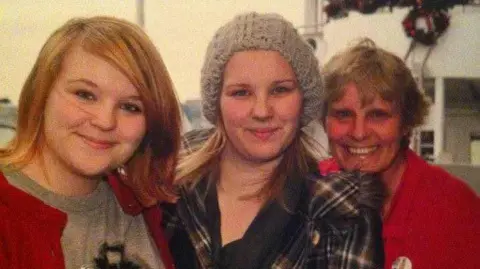 Jordan Findlay
Jordan FindlayListen to highlights from West Yorkshire on BBC Sounds, catch up with the latest episode of Look North.
